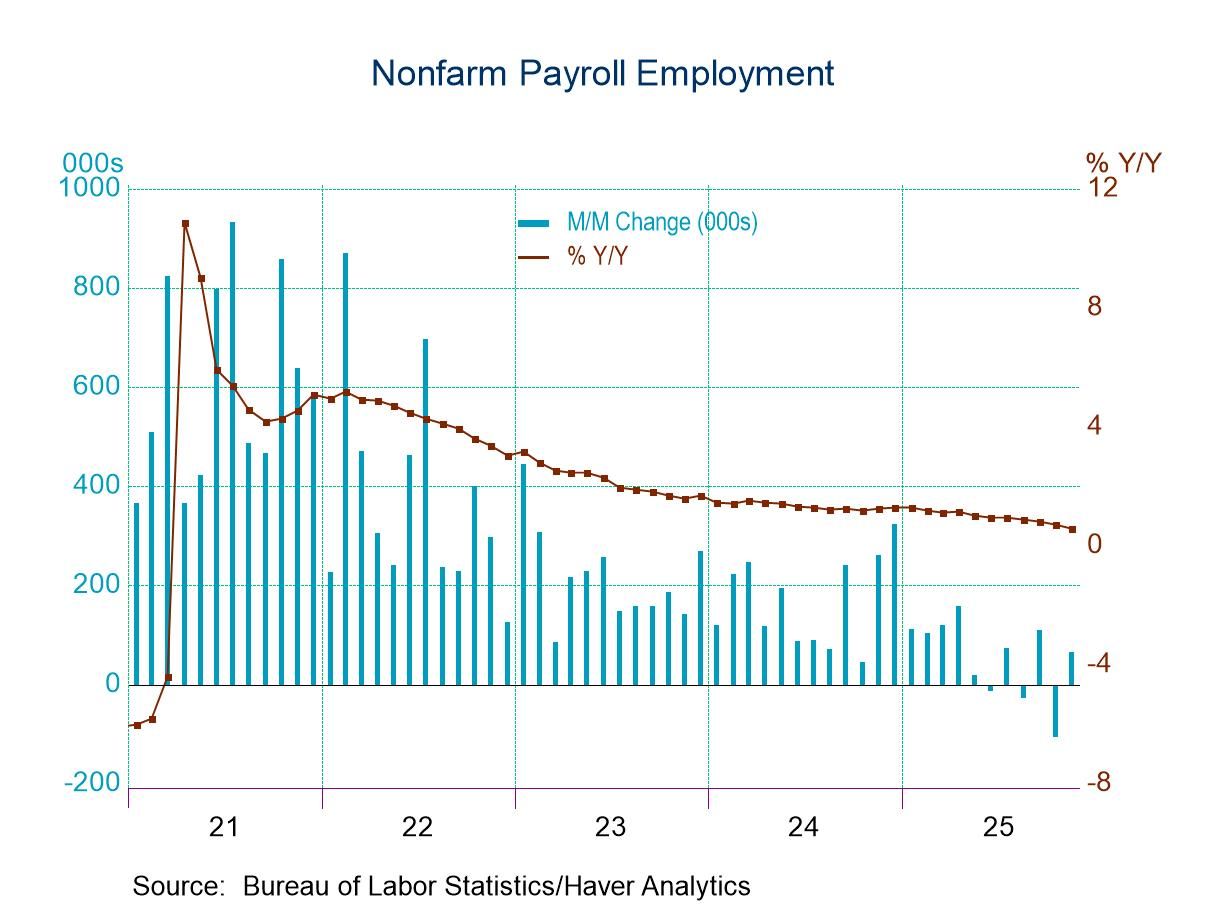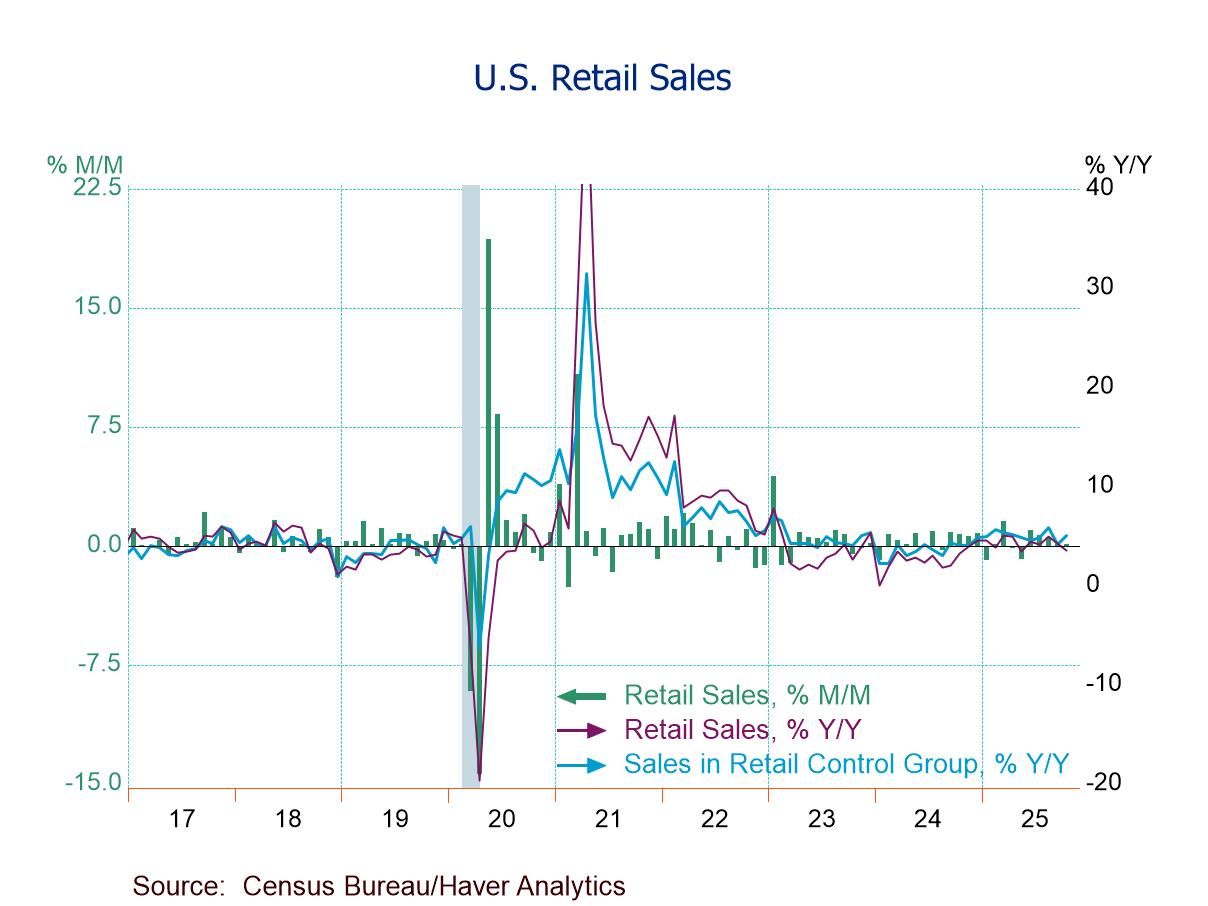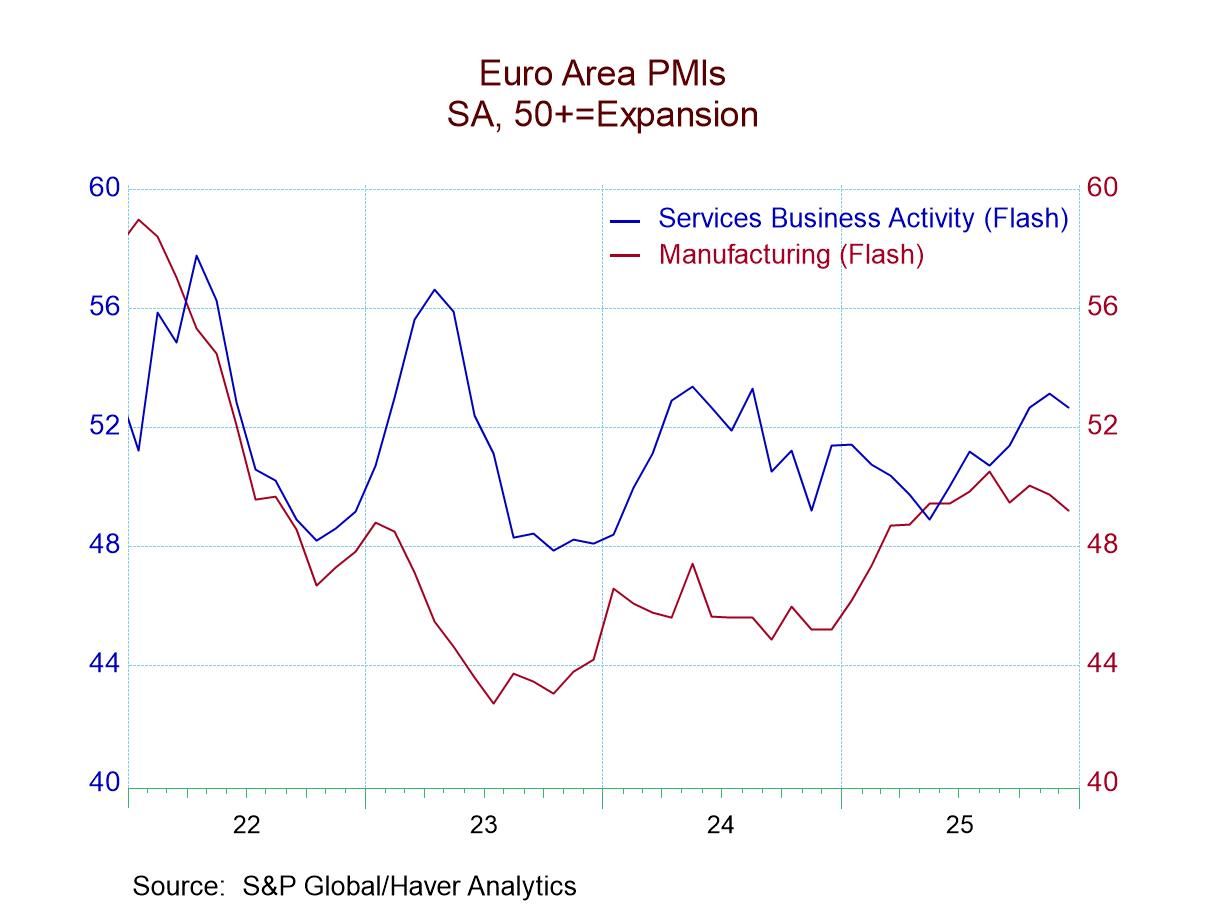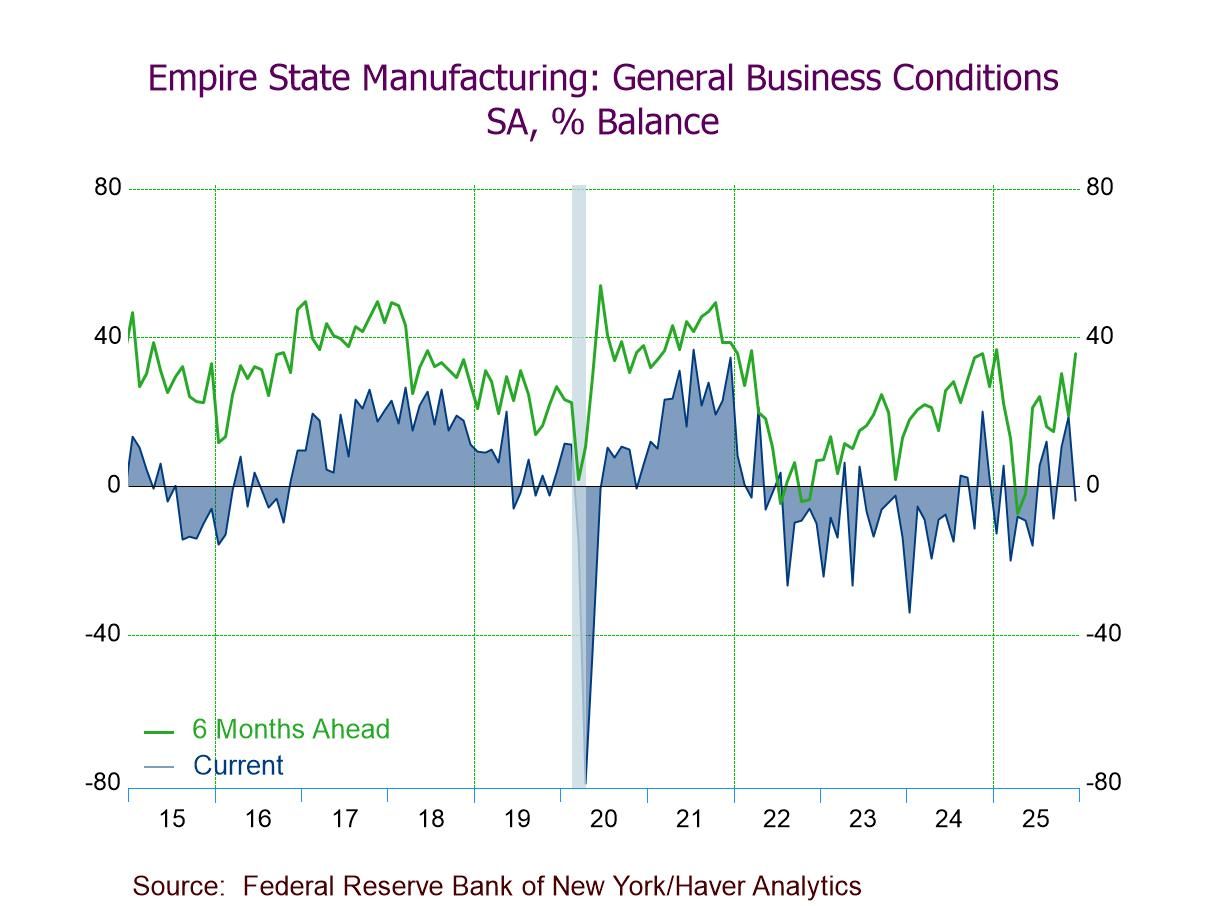 Global| Dec 03 2008
Global| Dec 03 2008U.S. Light Vehicle Sales Fell Further, Lowest Since 1982
by:Tom Moeller
|in:Economy in Brief
Summary
Auto showrooms were even more quiet last month than during October. U.S. sales of light vehicles fell to 10.18 million units (AR), down by more than one-third from the year-ago level. Sales were at their lowest since October 1982 [...]
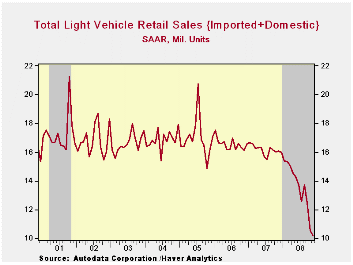
Auto showrooms were even more quiet last month than during October. U.S. sales of light vehicles fell to 10.18 million units (AR), down by more than one-third from the year-ago level. Sales were at their lowest since October 1982 according to the Autodata Corporation and Ward's Automotive News. (Seasonal adjustment of the figures is provided by the U.S. Bureau of Economic Analysis). The 3.6% m/m decline last month came on top of the 15.5% flop during October.
Unit sales so far this year have averaged a 13.44M annual selling rate, down 16.9% from the first eleven months of last year. The level of November vehicle purchases was even weaker than Consensus expectations for sales of 10.4M.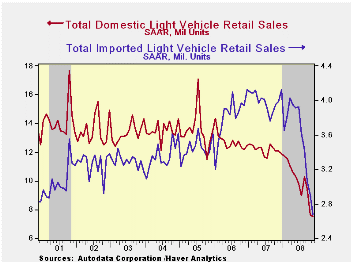
Sales of domestically made light vehicles fell 1.9% to 7.05M units after the nearly 20% October slide. Domestic vehicle sales are off 38% y/y. Year-to-date, sales were down 18.9% on average from the first eleven months of last year. Domestically made light truck sales recovered all of a 5.3% October fall after 22.0% and 11.8% m/m declines during the prior two months. Truck sales this year were off by nearly one quarter from the first eleven months of 2007. Sales of U.S. made cars also have been quite weak and fell 10.0% after declines of 15.2% during October and 3.7% the month prior. As drivers continued to shift purchases to relatively fuel efficient vehicles, car sales were down a relatively moderate 11.2% versus the first eleven months of last year.
Sales of imported light vehicles continued to reflect economic recession in the U.S. and fell 8.0% last month (-33.0% y/y) to 2.67M units. That shortfall followed declines during six of the prior seven months. The latest was the lowest level since December 1999.Sales of imported autos more than reversed their October uptick and fell 12.4% to 1.71M units, off a moderate 6.4% from the first eleven months of last year.Sales of imported light truck sales ticked up 0.9% (-34.9% y/y) and were off 19.0% from the first eleven months of last year.Import's share of the U.S. light vehicle market fell to 26.2% of the U.S. vehicle market. (Imported vehicles are those produced outside the U.S. and do not include vehicles with the nameplate of a foreign manufacturer produced within the U.S.)
Who really made your car? from the Federal Reserve Bank of Chicago is available here.
Economy in lower gear through 2008 also from the Federal Reserve Bank of Chicago can be found here.
| Light Vehicle Sales (SAAR, Mil. Units) | November | October | Y/Y | 2007 | 2006 | 2005 |
|---|---|---|---|---|---|---|
| Total | 10.18 | 10.56 | -36.7% | 16.17 | 16.54 | 16.96 |
| Autos | 4.95 | 5.55 | -37.0 | 7.58 | 7.77 | 7.65 |
| Domestic | 3.24 | 3.60 | -39.3 | 5.07 | 5.31 | 5.40 |
| Imported | 1.71 | 1.95 | -31.9 | 2.51 | 2.45 | 2.25 |
| Light Trucks | 5.23 | 5.01 | -36.4 | 8.60 | 8.78 | 9.32 |
| Domestic | 4.26 | 4.05 | -36.8 | 7.12 | 7.42 | 8.12 |
| Imported | 0.97 | 0.96 | -35.5 | 1.48 | 1.37 | 1.20 |
Tom Moeller
AuthorMore in Author Profile »Prior to joining Haver Analytics in 2000, Mr. Moeller worked as the Economist at Chancellor Capital Management from 1985 to 1999. There, he developed comprehensive economic forecasts and interpreted economic data for equity and fixed income portfolio managers. Also at Chancellor, Mr. Moeller worked as an equity analyst and was responsible for researching and rating companies in the economically sensitive automobile and housing industries for investment in Chancellor’s equity portfolio. Prior to joining Chancellor, Mr. Moeller was an Economist at Citibank from 1979 to 1984. He also analyzed pricing behavior in the metals industry for the Council on Wage and Price Stability in Washington, D.C. In 1999, Mr. Moeller received the award for most accurate forecast from the Forecasters' Club of New York. From 1990 to 1992 he was President of the New York Association for Business Economists. Mr. Moeller earned an M.B.A. in Finance from Fordham University, where he graduated in 1987. He holds a Bachelor of Arts in Economics from George Washington University.



